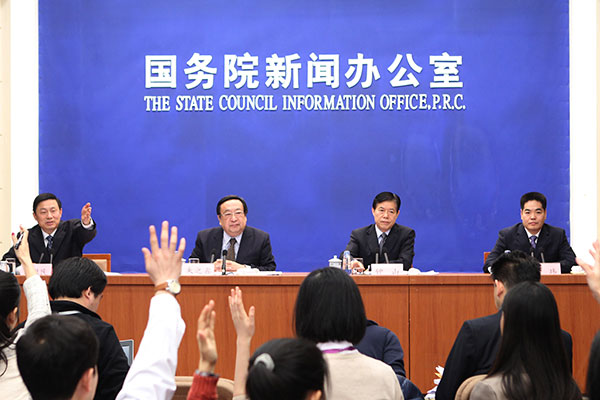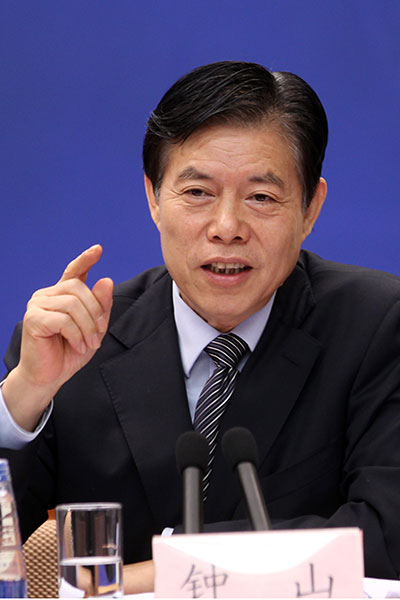
Zhong Shan (R2), vice-minister of commerce, and Zhu Zhixin (L2), vice-chairman of the National Development and Reform Commission, attend the first weekly policy briefing of the State Council in Beijing, Jan 16, 2015. [Photo by Zou Hong/english.govlcn]
POLICY BRIEFING OF THE STATE COUNCIL ON JAN 16, 2015
China’s outbound investments will soon outgrow inward foreign direct investment (FDI), said Zhong Shan, China’s International Trade Representative and vice-minister of Commerce at the State Council’s first weekly briefing on Jan 16.
Nonfinancial outward direct investment reached $102.9 billion, up 14.1 percent from 2013, the first time it topped the $100 billion mark, maintaining China’s position as the third-largest global outbound investor, Zhong said.

Zhong Shan, vice-minister of commerce , speaks at the first weekly policy briefing of the State Council in Beijing, Jan 16, 2015. [Photo by Zou Hong/english.govlcn]
On current trends, China’s outward investment is set to continue to grow faster than its utilization of foreign investment, which will make China a net investor, he added.
In 2014, China’s actual use of foreign investment stood at $119.6 billion, an increase of 1.7 percent over the previous year, growing faster than other major economies, including the United States, the European Union, Russia and Brazil. This marked the 23rd consecutive year that China was the leading developing country in attracting foreign investment, according to Zhong.
Investment in developed countries from China also saw rapid growth. China’s investment in the US rose by 23.9 percent, and in the EU by 1.7 fold, both much faster than overall outward investment growth, Zhong said.
China spent 64.6 percent of its total investments in the service sector, with investment in the sector up 27.1 percent than that of 2013, while investment in mining dropped by 4.1 percent, representing a declined share of 18.8 percent, based on Zhong’s report.
“Going forward, we will focus on implementing the strategy of ‘One Belt, One Road’ as we further step up outbound investment and encourage the relocation of advantageous industries and excess capacity of countries along ‘One Belt, One Road,’” Zhong said.
